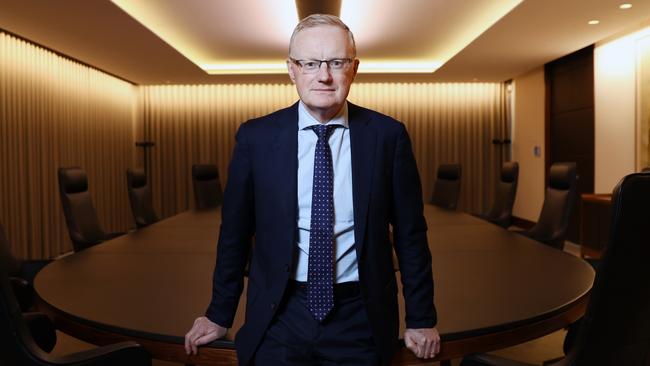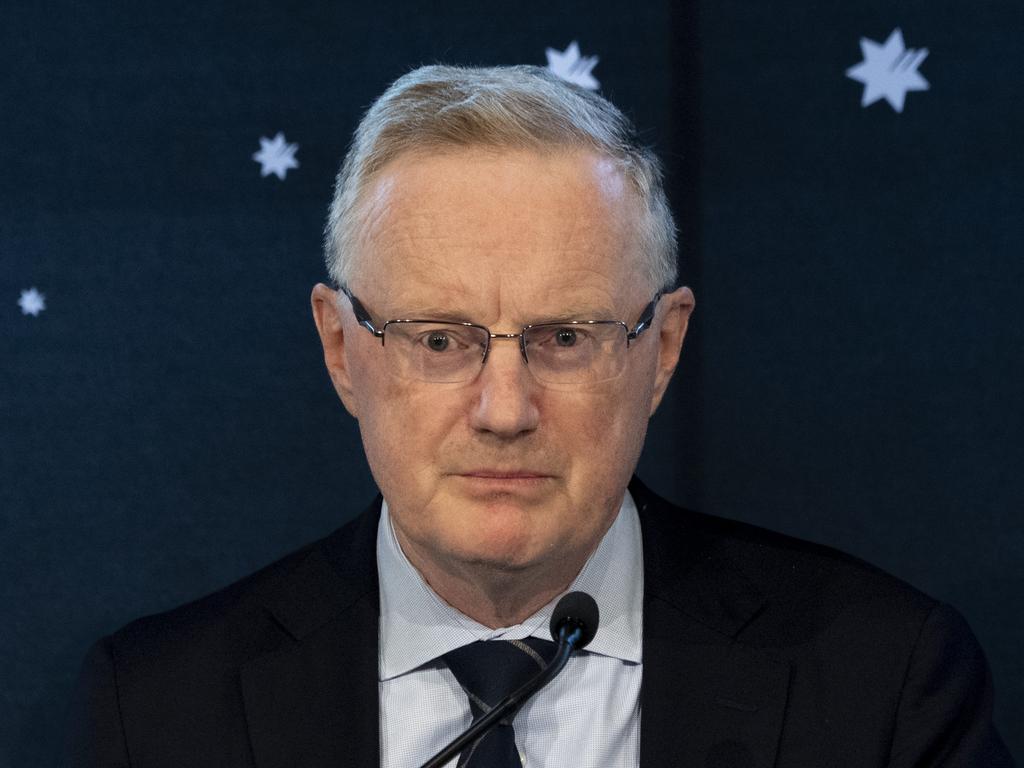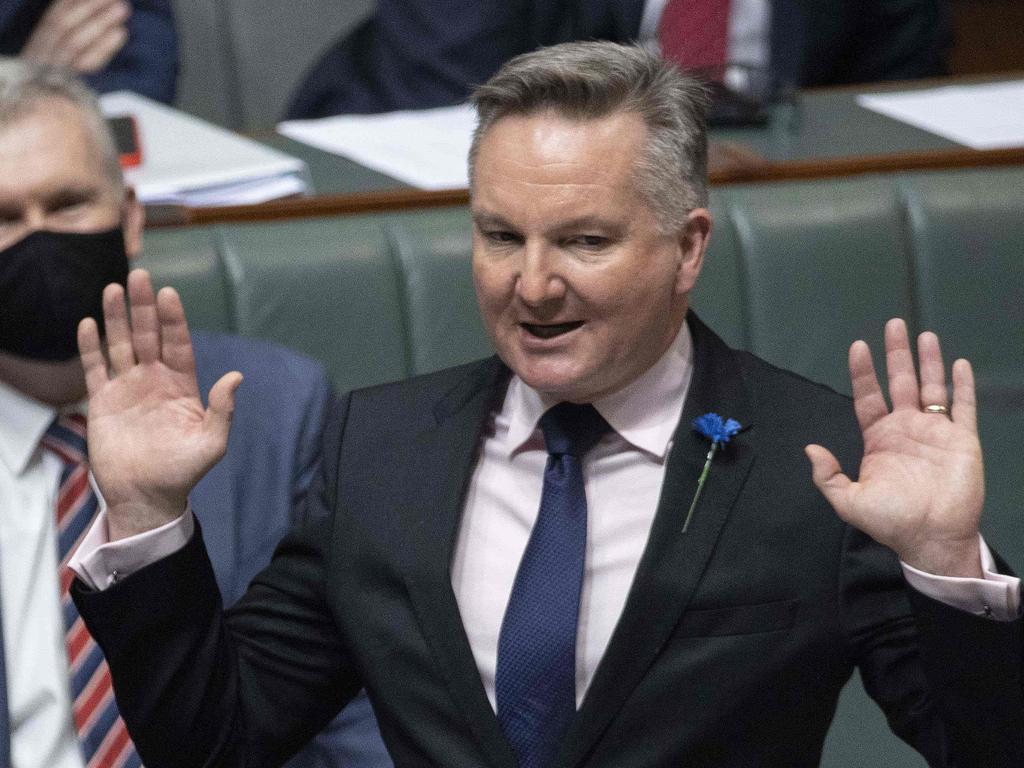Higher rates needed to vanquish inflationary ‘scourge’: Reserve Bank governor Philip Lowe
Wage demands could force interest rates higher for longer, increase unemployment and hit lower-income earners the hardest, Philip Lowe has warned.

An acceleration in wage demands to compensate for higher inflation could force interest rates higher for longer, increase unemployment and hit lower-income earners the hardest, Reserve Bank governor Philip Lowe has warned.
Pursuing wage growth demands of the 5 per cent levels seen in major overseas economies such as the US and Britain would make it “very difficult, if not impossible” for the RBA to tame inflation without triggering a recession, Dr Lowe said.
His warning follows the Fair Work Commission’s decision to award the lowest-paid workers a 5.2 per cent wage rise and a union campaign to force higher wage outcomes to offset rising cost-of-living pressures that has seen days lost to strikes rise to the highest level since 2004.
“I know it’s very difficult for people to accept the fact that wages are not rising with higher inflation,” Dr Lowe said. “That’s very difficult, and it’s causing a lot of people distress.”
But he said the alternative – of wages keeping pace with the rising cost of living – would mean that inflation was protracted.
“It means even higher interest rates later on, and even more unemployment later on,” Dr Lowe said.
“And it’s going to hurt low-income people more.”
In a speech to the Anika Foundation in Sydney, Dr Lowe signalled that the pace of interest rate rises would slow even though further increases from the current 2.35 per cent would be needed to vanquish the “scourge” of high inflation. Dr Lowe’s speech prompted economists to predict two further rises of 0.25 percentage points by the end of the year, down from three. Stocks ended the day 1.8 per cent higher as money markets reduced their predicted peak of the RBA’s cash rate in mid-2023 to about 3.6 per cent from 3.79 per cent.
Dr Lowe said the main uncertainty facing the bank and whether it would be able to navigate the “narrow path” to cooling demand without triggering a downturn was whether ongoing strong price rises became embedded in high wage claims across the economy. “If workers and businesses come to expect higher inflation, and wages growth and price-setting behaviour adjusts accordingly, the task of navigating that narrow path will be very difficult, if not impossible,” he said.
“A shift higher in inflation expectations will require higher interest rates. In time that would mean a sharper slowing of the economy. It is in our national interest that we avoid this.”
Dr Lowe defended the RBA from criticism that it had provided an assurance that rates would not rise until 2024 only to embark on the sharpest program of interest rate rises in more than three decades. He said he had “no plans to resign”.
“I did not promise interest rates wouldn’t go up,” he said. “I know that many people interpret my previous statements as saying that, but if you look back carefully, we never said that.
“What we said was we thought the pandemic was going to have long-lasting, disruptive effects on the economy that would keep inflation low, and would keep unemployment high, for years, and we wanted to do what we could to prevent that.”
Dr Lower said the health situation had improved more rapidly than predicted and the interest rate decreases had to be unwound more quickly. But an economy near or at full employment for the first time in 50 years was the “legacy” of the decisions the central bank board took through the pandemic.
Dr Lowe warned there would be difficult times ahead for some households’ from rate rises and high inflation.
The full effect of the 2.25 per cent in rate rises wasn’t yet evident in household mortgage payments “and that’s to come over the course of the next 12 months”.
After the Albanese government’s job summit commitment to lift the barriers to multi-employer agreements, Dr Lowe said any proposed changes to the wage-setting system needed to consider whether they would “enhance or damage” the economy’s capacity to respond to future shocks in an “uncertain world”.
“We need to be flexible in the labour market,” he said.
“So whatever changes that are considered in the labour market, I think we need to preserve the flexibility to react.”
Industrial action has increased as unions pursue wage increases that match the pace of inflation. New Australian Bureau of Statistics data revealed there were 128,100 working days lost to strike action in the June quarter – the highest quarterly total since 2004.
The foregone days involved 73,700 employees across 52 disputes, the ABS figures showed. Nine in 10 working days lost to strike action in the three months to June were in the education, health care and social assistance industries.
Jim Chalmers will meet state and territory counterparts on Friday to discuss a co-ordinated approach to implementing the commonwealth’s priorities such as increasing the supply of affordable housing. He reiterated that the government’s efforts were to get wages moving “strongly, but sustainably”.
With wages growth running at under half the 6.1 per cent rate of inflation, Dr Lowe said households would need to suffer through a necessary and difficult – but temporary – period where Australians would have to endure falling real incomes.
Economists said Dr Lowe’s comments suggested further rate moves, but that the change in the cash rate would be a more typical 25-basis-point increase.
With a Treasury-led review into the central bank’s operations, performance and governance underway, Dr Lowe said he remained convinced that a flexible inflation-targeting regime remained the best choice.








To join the conversation, please log in. Don't have an account? Register
Join the conversation, you are commenting as Logout